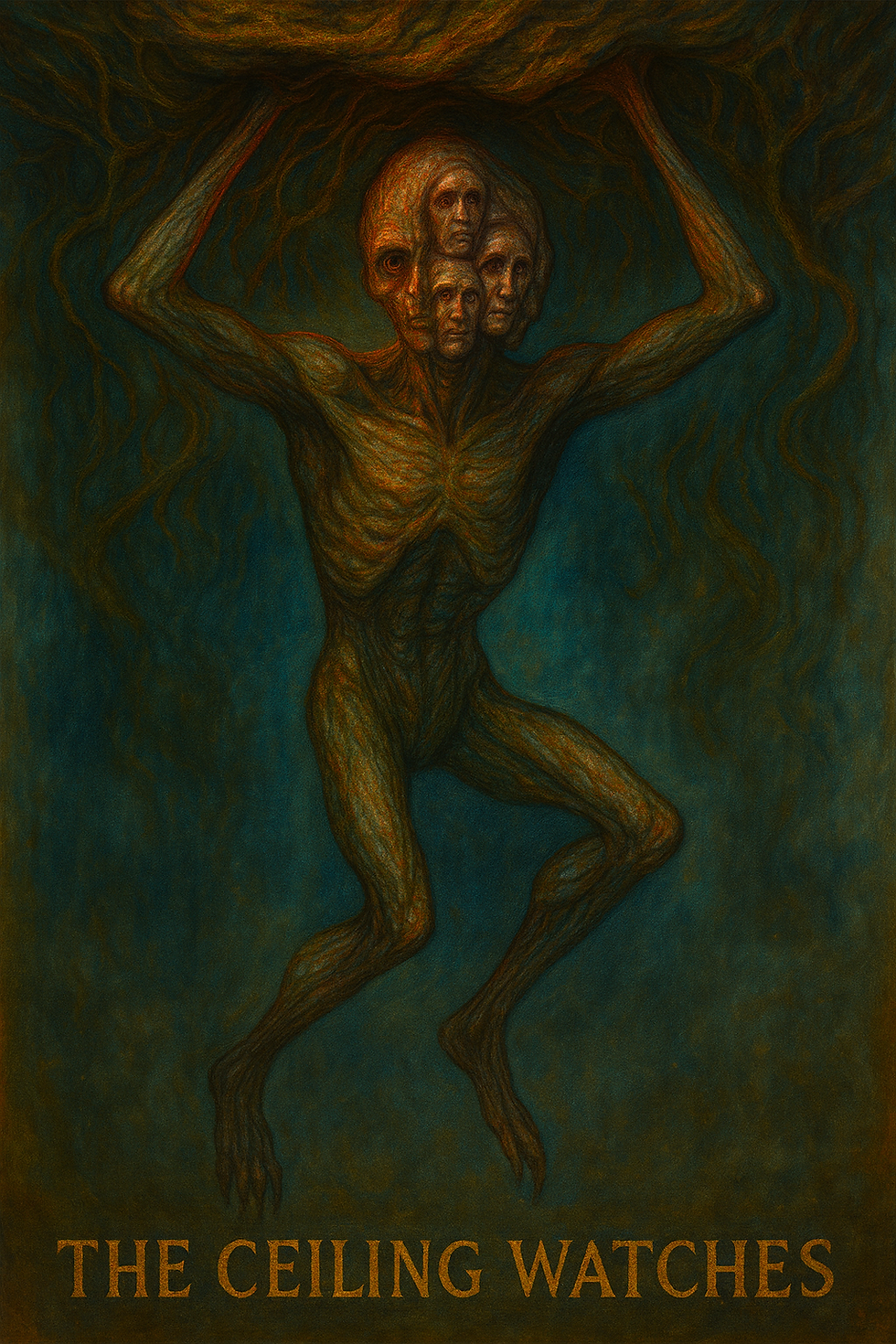Behind the Veil: Making Chapter 12 — Psalms of Flesh
- Joshua Bish
- Oct 19, 2025
- 3 min read


Why this chapter exists
Psalms of Flesh is the book’s liturgy—the moment the Shadow Realm stops hiding its ecosystem and sings its theology out loud. Earlier chapters let you glimpse single predators (the Lady, the Witness, Yekkath). Chapter 12 widens the aperture: a cathedral-wound where monsters aren’t jump-scares but doctrines with bodies. This turns the series from haunted-room folklore into cosmic taxonomy—suffering learned language and put on skin.

How it was made
Core image → “A congregation that does not kneel.” I drafted a list of emotions (shame, regret, arrested love, stolen time) and asked: If this feeling had cartilage, what would it do to a person? Each creature had to perform its idea, not just display it.
Structure → A psalter. Short invocations (name, epithet), then a ritual action (what it takes), then a localized intrusion (how it enters our world: vents, phone lines, plumbing). Refrains echo the book’s heartbeat time: 3:16.

Sensory palette →
Color: bruised teal, iron-amber, bone-gray—matching prior chapters (Rooms 316/“Womb,” “Witness,” “Walls”) so images feel like one infection spreading.
Sound: a continuous hum that rises whenever a name is spoken—this ties to Chapter 11’s “wiring-buzz.”
Texture: wet stone, feather-wax, dental porcelain, hospital cotton—mundane materials turned heretical.

Ethic of horror → No monster exists for spectacle; each is a moral machine:
Kithra = unwanted touch → memory of complicit hands.
Murnak = apologies weaponized → hymns you can’t stop singing.
Veluth = love as entanglement → intimacy that erodes bone.
Chitter Jane = play as predation → childlike cadence hiding consumption.
Father Plume = inherited guilt → texts branded inward.
Swallower of Clocks = time theft → chronology as meat.
Elpit = caretaking as coercion.
Thing in the Sink = domestic rituals turned sacrament of disgust.
Brother Grin = nostalgia sharpened.
Closet Twins = thresholds rehearsing you.

How Psalms of the Flesh fits the series
From Chapter 9 (Womb): Birth is the governing sacrament; Chapter 12 shows the congregants birthed by that sacrament.
From Chapter 10 (Witness): Surveillance becomes celebration—the Witness watches; the choir answers.
From Chapter 11 (Yekkath): Walls learned to speak; now we learn what they are speaking for.Together they establish a rule: the more you name them, the closer they get. Chapter 12 is the index you shouldn’t read aloud.

Craft notes you might enjoy
Each monster’s verb was chosen first (stroke, sing, fuse, brand, swallow, sew, beg, joke, knock). Nouns came last.
I kept human scale anchors (sinks, mobiles, clocks, closets) so the cosmic can bruise the ordinary.
The Lady appears briefly but conducts silently—her authority is gravitational, not rhetorical.

Symbols to watch next chapters
Repeating circle (pit, clock face, crib-ring): appetite that has learned recursion.
Hands vs Teeth: touch erases consent; bite erases time.
Hum → becomes a meter for how close the closet is to opening.

Comment question
Which psalm/creature unsettled you most—and why? Tell me how it maps to a real feeling you’d rather not revisit.

Call to service
If this chapter crawled under your skin, share the blog, leave a quick comment, and invite one horror-loving friend to Room 316. Reviews and word of mouth keep the Realm fed (and this series alive).





Comments